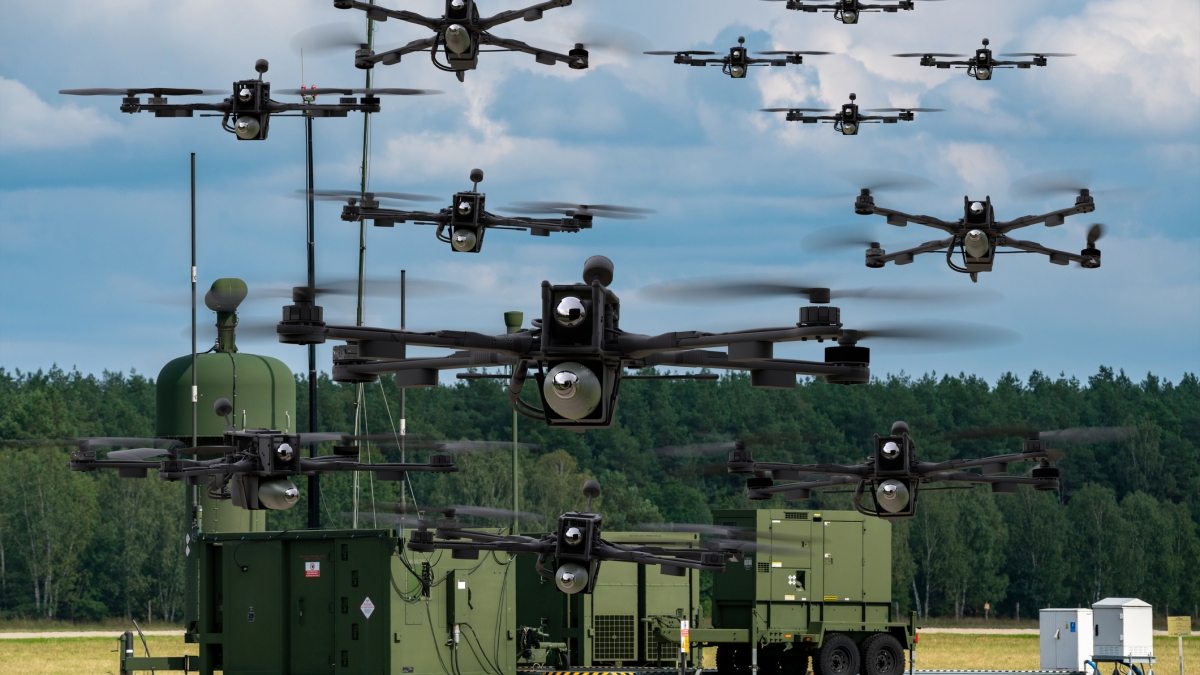ASU researchers awarded DARPA contract to develop framework for measuring ethical readiness of autonomous systems

iStock photo
With autonomous systems advancing rapidly in both military and civilian fields, how do we ensure these technologies perform ethically in high-stakes environments?
Academics from Arizona State University and the University of New South Wales (UNSW) have been awarded a multiyear contract by DARPA to pioneer new research in military ethics and autonomous technologies.
This contract was granted through DARPA’s Autonomy Standards and Ideals with Military Operational Values (ASIMOV) program, which aims to create benchmarks to assess how well autonomous systems, including those employing artificial intelligence (AI), can handle complex, ethically sensitive situations in military settings.
As autonomous technologies evolve, ASIMOV seeks to develop a comprehensive framework that evaluates the ethical readiness, in addition to the technical ability, of these systems to operate in real-world military scenarios.
The research project, titled "Adversarial Generative Ethics for Autonomous Weapon Systems," will be led by Professor Deane-Peter Baker from the School of Humanities and Social Sciences at UNSW Canberra.
Baker will guide a team of experts from UNSW Canberra’s School of Systems and Computing and UNSW Sydney’s law and justice faculty, as well as faculty in ASU’s Center for Human, Artificial Intelligence, and Robot Teaming (CHART) who are members of ASU’s Department of Psychology; School for Engineering of Matter, Transport and Energy; Polytechnic School; School of Life Sciences; and School of Computing and Augmented Intelligence.
“To date, international engagement with the question of the ethical use of autonomous weapons has been at a level of generality. This project marks a sea change in seeking to establish a way of evaluating the specific ethical readiness of particular systems for the battlefield," Baker said. "I am honored to be working alongside an outstanding team of interdisciplinary experts at UNSW and ASU as we seek to make real progress on this vital question."
This collaborative effort aims to break new ground by establishing a quantitative approach to measuring the ethical difficulty of future autonomy use cases and the ability of autonomous systems to perform in those use cases within the context of military operational values.
Supported by Security & Defence PLuS, a unique trilateral partnership among UNSW, ASU and King’s College London, this project represents a commitment to advancing shared security and defense priorities for Australia, the United Kingdom and the United States, as well as their allies and defense partners worldwide.
More Local, national and global affairs
A record 9 ASU students awarded US Department of State’s Critical Language Scholarship
Nine Arizona State University students have been selected for the highly competitive Critical Language Scholarship, or CLS, program — an initiative of the U.S. Department of State that aims to…

Putting hope above hate at antisemitism conference
Hatred and hope were the overarching themes of the “Rising Above Together” conference hosted April 11 by the Anti-Defamation League in partnership with Arizona State University.Hatred: According to…

Arizona PBS is now free to stream for Prime Video viewers in the US
Arizona PBS is now available for streaming on Amazon Prime Video. A new partnership between PBS and Amazon brings the station’s primary, high-definition broadcast channel, along with the 24/7 PBS…

